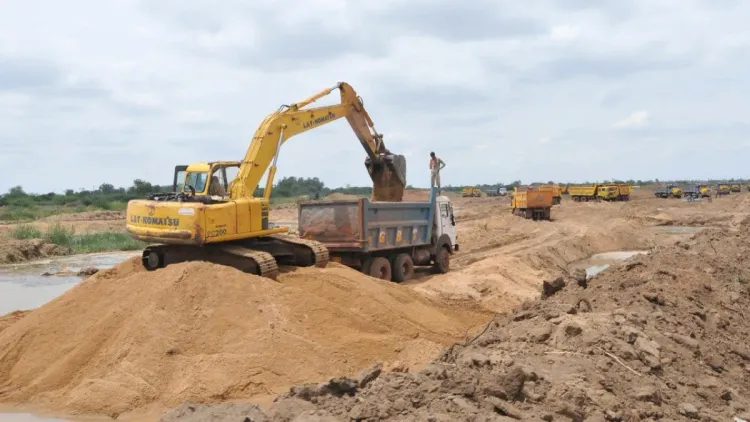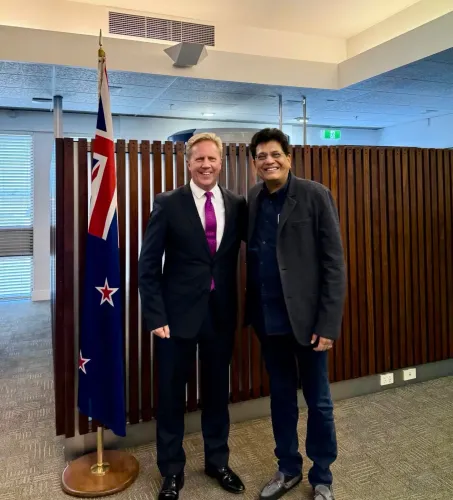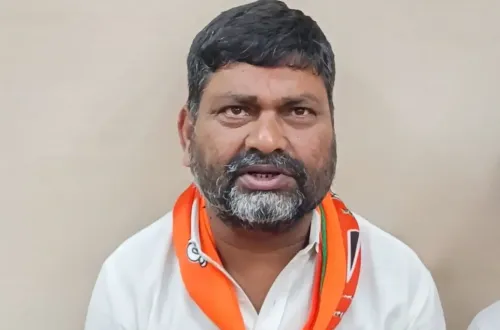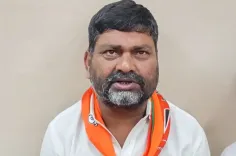Punjab Government Unveils New Policy to Combat Illegal Mining and Boost Sand Supply

Synopsis
Key Takeaways
- New amendments to the Punjab Minor Mineral Policy approved.
- Landowner mining sites will promote legal mining activities.
- Deputy Commissioners can now issue NOCs for mining on government lands.
- Senior citizens can participate in pilgrimage trips funded by the government.
- IAS and IPS officers will mentor students in rural schools.
Chandigarh, April 3 (NationPress) The Punjab Cabinet, led by Chief Minister Bhagwant Mann, has taken decisive steps to combat illegal mining and further decrease the costs of sand and gravel for the public.
A spokesperson from the Chief Minister’s Office announced that the Cabinet has approved crucial amendments to the Punjab Minor Mineral Policy. This initiative aims to boost the availability of raw materials in the market, diminish illegal mining and corruption, lower consumer prices, enhance state revenues, and eradicate potential monopolies in the mining industry.
The amendments will support crusher mining sites, allowing landowners with gravel to obtain mining leases. This strategy is anticipated to mitigate the illegal transport of materials from other states and enhance the supply of crushed sand and ‘bajri’ in the market, essential for the state’s development projects.
Moreover, landowner mining sites will enable those with land containing sand deposits to apply for mining leases and sell the materials in the open market at government-set rates.
Previously, many mining sites were inactive due to landowners' refusal to permit outsiders to mine their properties.
The introduction of landowner mining sites is expected to increase the number of operational mining sites, subsequently boosting market supply and state revenue while preventing monopolies in the sector.
Additionally, Deputy Commissioners have been empowered to issue no-objection certificates (NOCs) for government and panchayat lands, as they are the custodians of these lands.
This alteration will streamline processes and expedite the activation of mining sites on government lands.
The Cabinet also approved the provisions of the Mukhya Mantri Teerth Yatra Scheme, which offers free pilgrimage trips for senior citizens at the government’s expense. The government will cover all travel costs, including air-conditioned transport, comfortable lodging, and meals.
To make the pilgrimage memorable, participants will receive special gifts and souvenirs. Citizens aged 50 and above can avail themselves of this scheme, which is open to individuals of all castes, religions, income groups, and regions. Residents from both urban and rural areas can benefit from this initiative. The journey aims to highlight the state’s rich spiritual, religious, and cultural heritage by visiting major religious sites. Spiritual discourses and devotional singing (satsang and kirtan) will be organized during the pilgrimage, and ‘prasad’ will be distributed to all travelers. A budget of Rs 100 crore has been allocated for this initiative, with the possibility of further increases if necessary. Registration for the yatra will commence this month, with the journey set to begin in May.
Furthermore, the Cabinet has approved a school mentorship program in the state, stipulating that IAS and IPS officers will adopt rural schools and guide students towards success. This pilot project will be launched in 80 distinguished schools across the state, with each officer assigned to a school for five years, regardless of their posting location. This initiative aims to enhance the educational environment through interaction with students and teachers, while also preparing students for competitive exams and providing teacher training to enhance their skills.
These officers will serve as catalysts for gathering resources and experts for the development of these schools, working as mentors rather than authoritative figures. This endeavor will be a voluntary service, and interested officers will need to carry out these responsibilities alongside their existing duties.









